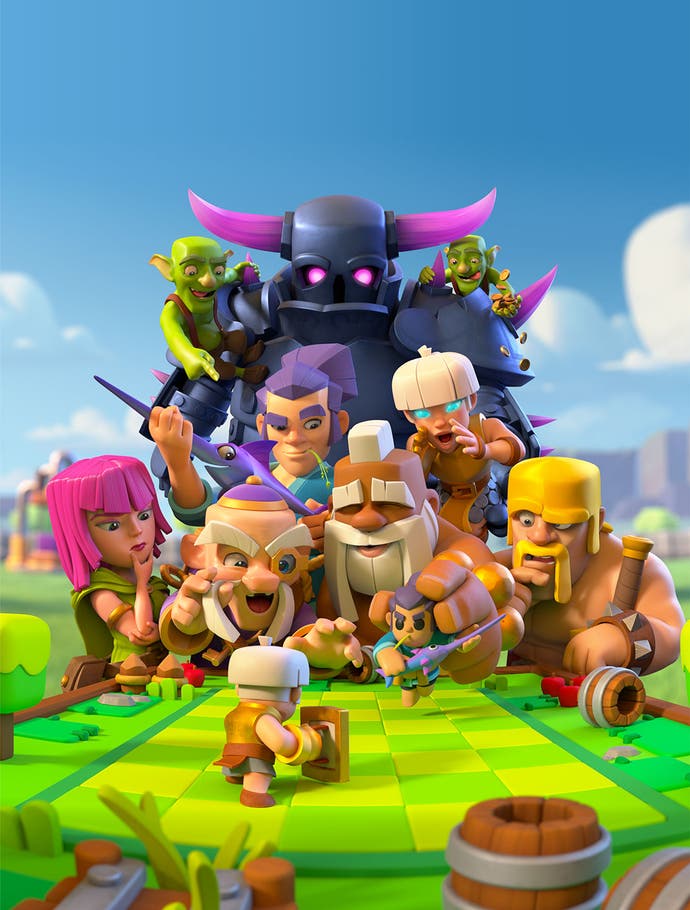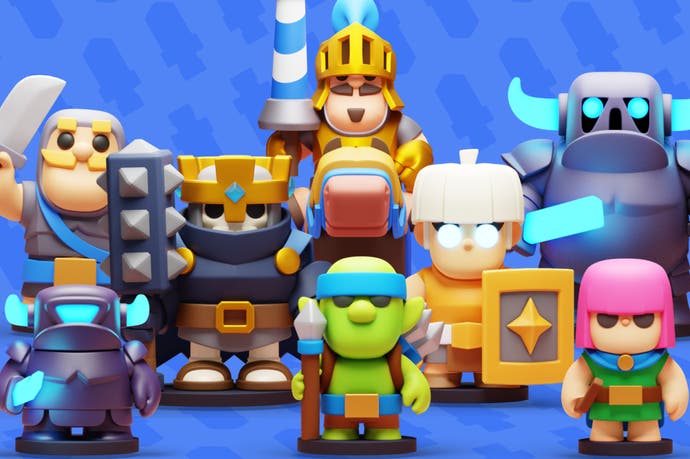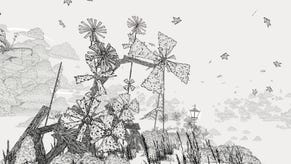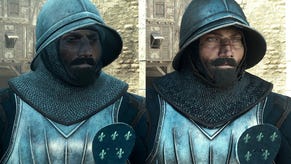A weekend with Clash Mini
Knight and day.
I've been excited about Clash Mini since it was announced. The idea's simple: the Clash universe, with all the units and concepts I already understand, but this time instead of the streamlined tower-defence battles of Clash Royale, it's something closer to a brisk spin on the auto battler genre. This is a sort of game I'd always wanted to get into but struggled with. All of that combined with the fact that Supercell squishes a lot of games before they get to an actual release, I was doubly intrigued. Clash Mini would be the first new Supercell game in an age. What would a game the publisher deemed fit for actual release look like after all this time?
For years I kept an eye out on all the news, but I must have drifted somewhat. In the end, Clash Mini's UK soft launch in early July was so soft that I missed it completely. Anyway, last week I idly checked on the App Store to see if it was out, and discovered that it was. I've been playing it ever since. It's an interesting game. Here's what I think so far.
Clash Mini takes auto battlers and shrinks them down so they fit inside of three minutes or so. It's you and an opponent at either end of a 8x5 board. At the beginning of each round you place a bunch of units down until you've run out of elixir, or mana. You rival does the same. The game starts and all placements are revealed. Then your units fight your rival's units and you can't intervene. You can place more units in between each round. First player to win three rounds gets the glory. That's it.
As I expected, Clash Mini does some neat stuff with this formula. First-to-three makes for snappy matches, and the limited board space and relatively small number of units moves things along quickly too. Even better, once a round has gone on for a certain time, things speed up even more with a super-paced Frenzy Mode, which rushes everything to its conclusion. I had worried that even a fastish auto battler would involve a bit of waiting around, and that really isn't the case.
Even so, I found my first few games rather confusing. I'd always bounced off auto battlers because it felt like the complexity was front-loaded. From the off, I was making all these decisions - which units to place, where to place them - that I didn't really have enough info to make. My first few Clash Mini games were all victories - I imagine Supercell ensures that they are - but I didn't understand why they were victories. It's a disorienting feeling, to win and not understand why.
Over time, however - a morning at most - I started to get a grip on the game. For one thing, all the units were units that I already understood, having encountered them in Clash Royale. Even though Royale isn't an auto battler, in other words, I understood that Knights would rush at the enemy and do significant damage with the first attack, and that the pea-shooter guys should hang back and fire their peas. Likewise, the theoretically befuddling economy outside of the matches, with different currencies and timers and such - it all made sense because it too is carried across from other Supercell games.

Beyond that, I think Supercell understands that some of the Royale audience might need a little bit of help understanding what the point is here. As a result, there are match replays that allowed me to get a greater sense of what had just happened, as well as genuinely useful tool tips, and suggestions that pop up when you're choosing your units, telling you which other units will pair well with them.
And that leads me to where I am now, a few days in, a bunch of units unlocked, a bunch of games won and a bunch lost. And along with that, a growing sense of what this genre is all about.
And if you asked me what it's all about today, I'd say it's about deciding on a plan and then refining it, altering it, finding the hope in it, once you've encountered your enemy's plan. That first round is fascinating in a science experiment sort of way. You've placed your units, your rival has placed theirs, but you've both done this behind a fog of war. Suddenly, when the round starts, you see what you're up against, and that means when the second round comes along you can tweak, rebalance, strengthen. Does your rival have any weak spots you can slot a new unit into? Does your rival have any units that take any of your units out almost immediately? I get why this is sometimes called auto chess now. It's not just that it takes place on a chess board and all that jazz - it's deeply concerned with tempo in the same way chess is, and in making sure you manage to get on the offensive.
There's other stuff I love. When making changes before a round, you have a basic choice to either add new units or strengthen the units you already have: I love it when tactics games gives you such clear but consequential decisions to make. I love the attack-and-then-fix-things structure of the game, which gives each match a bit of narrative. I love learning about the various levels of skills and perks each unit has, which can transform them as they get more powerful. I've loved discovering a few basic synergies - and wondering, actually, if I can carry any of this stuff back to Clash Royale.
More than anything, though, I love that sense that a genre that I had always fancied, but suspected I was too thick for, is now brought a little closer to me - it's almost within reach. I gather that Clash Mini is still in soft-launch phase, but for UK players it's here and it's already a lot of fun. This is a game I'll stick with, I reckon.










